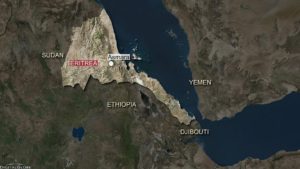- Stay Connected
Netherlands expels top Eritrean diplomat

The Dutch government has told the highest representative of Eritrea in the Netherlands to leave the country, minister of Foreign Affairs Halbe Zijlstra said on Wednesday.
Tekeste Ghebremedhin Zemuy has been declared persona non grata, Zijlstra wrote in a letter to parliament, as the government found mounting evidence of Eritrea continuing to force tax payments from people who fled the country.
A spokesman for the Eritrean Embassy declined to comment on the decision.
Dutch radio programme Argos last month said Eritrean refugees were being intimidated into paying a “diaspora tax” at the embassy in The Hague, in order to get access to its services, despite earlier orders by the Dutch government to stop this practice.
“This is an exceptionally severe measure, meant as a signal to the government of Eritrea”, Zijlstra said. “We want to make clear that we don’t tolerate these unwanted practices.”
Zijlstra said he had decided not to close the entire embassy, against the will of a majority in Dutch parliament, as that would make it impossible to help Eritreans.
He called on Eritreans to report criminal offences they had experienced at the embassy.
Eritrea’s Diapsora Tax which is levied on citizenship rather than residence has been a source of controversy in many countries including the United Kingdom, Sweden, Canada among others.
In 2011, the United Nations Security Council passed a resolution condemning the use of the diaspora tax ‘to destablise the Horn of Africa’ and instructed Eritrea to ‘stop using extortion, threats of violence, fraud and other illicit means to collect taxes outside of Eritrea from its nationals’.
Indeed on social media, a number of people condemned the expulsion of the diplomat and what they described as ‘double standards’ in treatment of countries with ‘diaspora tax’.
